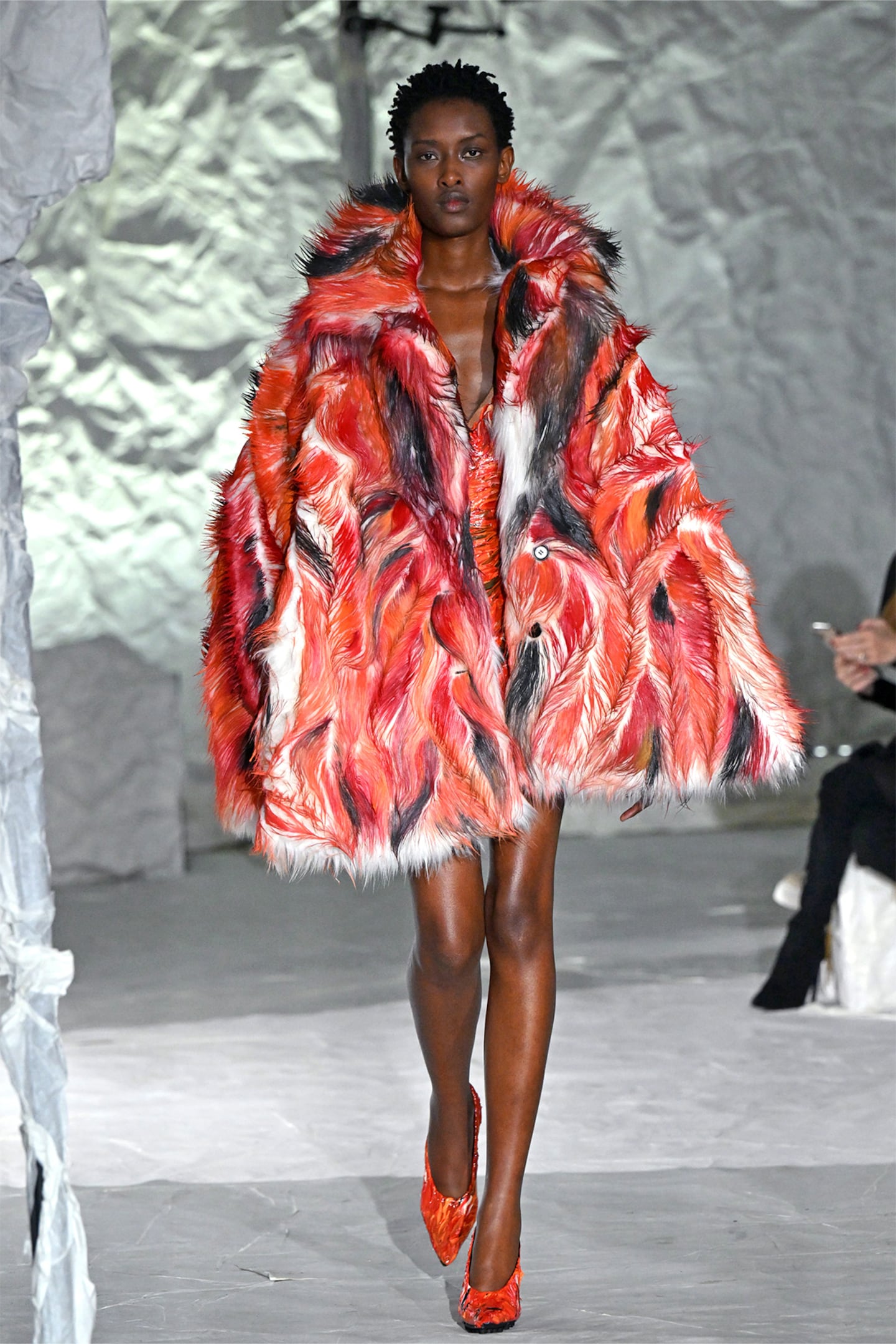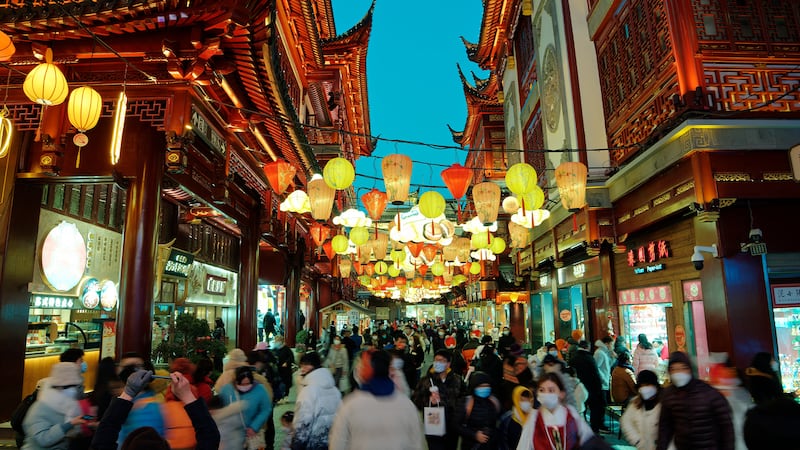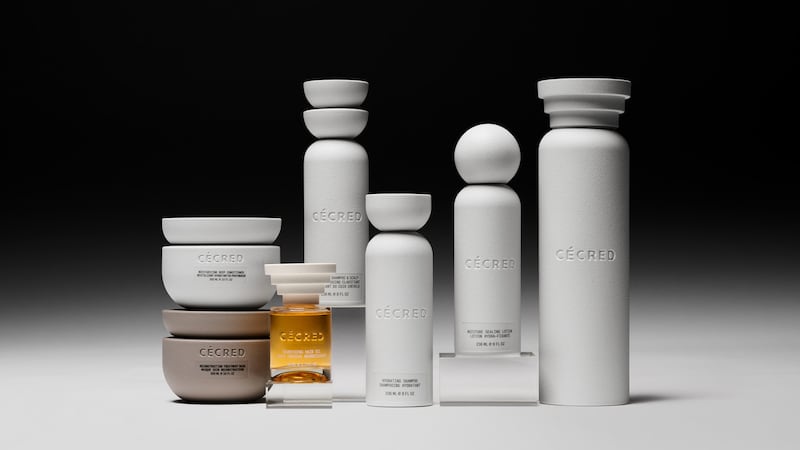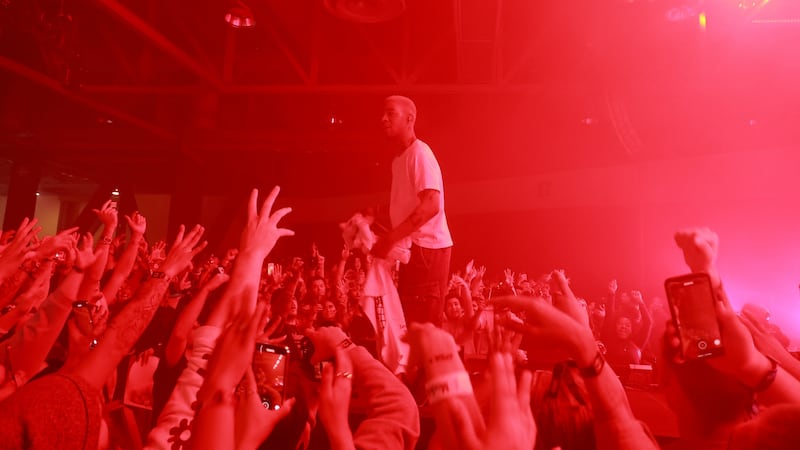
The Business of Fashion
Agenda-setting intelligence, analysis and advice for the global fashion community.

Agenda-setting intelligence, analysis and advice for the global fashion community.

On Friday, at Marni’s first show back in Milan, after a series of outings in New York, Tokyo and Paris, Francesco Risso showed a transporting collection with a heavy emphasis on the handmade. Two days before at OTB stablemate Diesel, Glenn Martens, too, leaned into wild creativity and extreme craft.
Both shows, a world away from the manufactured polish favoured by luxury mega-brands, typified the design-led approach that has driven strong results across OTB’s portfolio of fashion brands.
Last week, the group confirmed plans for an IPO after net sales reached €1.8 billion, up 10 percent from the previous year and 16.5 percent versus 2021. Each of OTB’s four marquee brands — Diesel, Marni, Margiela and Jil Sander — posted considerable growth, with Margiela (which delivered an internet-breaking couture show last month) at the top of the pack with 23 percent in year-on-year sales gain. Diesel, which filed for bankruptcy in the US just five years ago, saw a 13 percent boost.
It’s a remarkable set of figures considering the overall slump in luxury, a sector battered by stalling demand from aspirational shoppers who had fuelled record-breaking sales during the pandemic. By comparison, sales at Gucci-owner Kering dipped 4 percent in 2023.
ADVERTISEMENT
OTB founder Renzo Rosso has been working to get OTB on track for several years — and because the group is privately held, he’s been able to take his time to develop and implement a unique strategy that marries artisanal expression with commercial results. Where his brands may not have the marketing firepower and top retail positions of LVMH- and Kering-backed rivals, OTB’s brands have found success with a combination of strong designer-led creativity and key seasonless pieces.
“I am proud that all our brands are having a special moment and I think this is due primarily to two reasons: the first one is that we always put creativity front and center and it shows; and the second one is that we have chosen a different path from today’s common one, that is we really focus on the product, its beauty, its quality, its uniqueness, its durability,” Rosso told BoF in a statement.
Results were far from immediate for Marni, where it took years to win over enough new clients to cancel out the loss of Consuelo Castiglioni loyalists. Meanwhile, at Margiela, sales of hero products like low-top Replica sneakers and Tabi shoes have steadily climbed, but interest in the brand yo-yo’ed wildly as creative director John Galliano popped on and off the fashion week calendar, experimenting with films even after in-person fashion resumed following the pandemic.
At Jil Sander, Rosso is betting that Luke and Lucie Meier’s sleek-yet-romantic minimalism will serve as the perfect platform for a line of ultra-elevated luxury bags — another long-term play.
And at Diesel, the premium denim giant whose 1990s and early 2000s windfall funded the creation of the group, it took several years for the business to catch the wave of renewed buzz around the brand as Glenn Martens’ sleazy, irreverent revamp reinterpreted the brand’s codes for a new generation.
Diesel had struggled for more than a decade to navigate the decline of department stores and malls, not to mention the death of denim trend cycles and its own fading cultural relevance. But the wait has paid off. Not only has Diesel returned to double-digit topline growth, but its business is healthier: less dependent on discount-prone wholesalers, with fewer non-performing doors and a collection that’s more balanced with bags, shoes and outerwear in addition to jeans.
By giving time and space to the creative directors’ visions, Rosso has positioned OTB brands as an antidote to branding-led luxury megabrands, which leaned more heavily than ever during the pandemic on splashy marketing and logos. A generation of ultra plugged-in, social media-informed customers know how to recognise flagship items without the logo — and are increasingly turning to items like Margiela’s Tabi-toe boots or Marni’s colourful statement knitwear to express their identity.
“Young consumers appreciate the fact that our brands often take an opposite approach to the market, focusing largely on the look and quality of their products and continuing their mission to make fashion a dream,” Rosso said in the company’s financial results.
ADVERTISEMENT
OTB bands also operate with greater autonomy — avoiding cookie-cutter approaches to global expansion. “With the LVMHs and Kerings of the world, the trend has been to instil group-level functions to each brand. Even if outwardly, they say creative isn’t centralised, a synergised way of thinking creates a culture where group-level executives like to get involved,” said Tony Wang, founder of luxury brand consultancy Office of Applied Strategy, and former head of brand and content at Ssense. “Renzo runs a looser ship and gives his brands space to incubate and really cook.”
Where the group is more hands-on is in its supply-chain: another key ingredient to its success has been the close ties it maintains throughout the Italian fashion ecosystem, allowing the group to produce desirable products at prices that are dear, but still more accessible than equivalents from top luxury houses: think blazers for €1,450 instead of €2,700 at Fendi or Gucci.
The group tends to be pragmatic. At Margiela, for example, the brand went all-in on Galliano’s runway vision from the get-go but took years to identify savvy ways to trickle his ideas into the product and store concept, while leaving certain product lines alone. The mix of directional items and Martin-era classics made for messy merchandising and confusing brand messaging at times, but the components eventually clicked, resulting in a house that serves both Margiela traditionalists and Galliano superfans alike.
“Brands like Jil Sander, Margiela and Marni have a deep DNA. Couple that with talented creative directors and a wide range of price points; it gives more room for success,” said consultant Julie Gilhart. “Many of the codes have remained the same so they are not like a heritage brand that has been turned upside-down so it’s not recognisable anymore to an original customer.”
It’s miles away from the kind of shock-and-awe rebrandings often seen at corporate giants.
The question now is whether the company can stay true to its patient, designer-led approach to building fashion businesses under the scrutiny of public markets — which expect steady growth and swift action to turn around underperforming units. Last week, OTB Group chief executive officer Ubaldo Minelli told reporters that the company plans to list on the Milan Stock Exchange toward the end of 2024 or early 2025. As a public entity, OTB might standardise its approach in order to achieve more stable and consistent results.
For now, its brands occupy a rare rank in fashion, one of both critical acclaim and astounding commercial success.
Additional reporting by Imran Amed
ADVERTISEMENT
THE NEWS IN BRIEF
FASHION, BUSINESS AND THE ECONOMY

Spring Festival spending on China’s duty-free island hits record. Shoppers visiting China’s island province of Hainan spent 2.49 billion yuan ($346.2 million) on duty-free goods over the eight-day Lunar New Year holiday. That represents a year-on-year rise of 60 percent, with the number of shoppers from Feb. 10-17 reaching more than 297,000.
US investor in talks with Superdry co-founder about possible acquisition. The talks are at a preliminary stage and there is no guarantee that Davidson Kempner, US asset manager, will ultimately sign an agreement with Superdry co-founder Jamie Dunkerton. Dunkerton was also in discussion with Rcapital and Gordon Brothers as potential buyers.
Swiss watch exports struggle as luxury slowdown persists. Monthly exports increased 3.1 percent to 1.9 billion Swiss francs ($2.2 billion) by value. Growth was as high as 11.8 percent in the first half of last year.
Lanvin Group annual revenue was flat in 2023. Annual revenue rose by 1 percent to €426 million ($461 million) last year, hamstrung by weakness at its flagship brand Lanvin. From 2022 to 2023, the Lanvin brand’s revenues fell 7 percent to €111.7 million.
Tod’s CEO says there are no plans to sell the company. Diego Della Valle, said on Friday his family has no plans to sell the company after the delisting operation via private equity firm L Catterton.
Robbers make off with $50,000 of Gucci merchandise at gunpoint in New York. New York police are searching for a black Honda SUV with New Jersey license plates after three robbers held a Meatpacking District Gucci store at gunpoint. The suspects took the merchandise after telling shoppers and store sales assistants to lie down, police said.
Macy’s faces a proxy fight as Arkhouse pushes for board seats. The company said it would evaluate Arkhouse’s director candidate and that it was committed to “long-term value creation.” The push for board seats comes as the Bloomingdale’s parent struggles with weak demand amid a consumer spending pullback.
Zalando to halt ‘misleading’ green claims after EU probe. Following “a dialogue” with the European Commission, the company has committed to adjust its conduct. The commitment from Zalando means that from mid-April, it will no longer display sustainability icons or flags next to products, the commission said.
Tycoon Birla to tap India’s love for gold with a jewellery venture. The Aditya Birla Group’s branded-jewellery retail business will be rolled out nationwide under a privately-held company. The group is moving toward more consumer-facing businesses, Birla said.
Rihanna returns to Dior. The scope of the celebrity singer’s new Dior deal remains unknown, but industry sources say the former brand ambassador will star in a campaign lensed by Steven Klein.
Tomorrow Ltd acquires Samual Ross’ A-Cold-Wall. The London-based brand accelerator, a minority investor in the label since 2017, now owns 100 percent of the brand. The terms of the deal were not disclosed.
THE BUSINESS OF BEAUTY

Beyoncé debuts hair care brand Cécred. The line is inspired by global hair rituals and Beyoncé's mother, Tina Knowles’ Houston hair salon. Products range from $30 to $52 and are available exclusively via Cécred’s e-commerce site.
Chanel Beauty to stage pop-up in Edinburgh. The pop-up will celebrate its new Rouge Allure Velvet Nuit Blanche line of lipsticks. The pop-up is set to run from March 9 to March 30.
Coty adds Etro licence. Its new licence agreement with Etro, which will run beyond 2040, will see Coty produce and distribute the Italian fashion house’s fragrance offerings, including home scents. The agreement will build on Etro’s existing offering and will include “new categories and launches.”
Oriflame bonds fall further into distress as profit slides 84 percent. The beauty company’s $550 million notes due in 2026 lost nearly 3 cents on the dollar to 26 cents. It posted an adjusted EBITDA of €6.2 million ($6.7 million) for the fourth quarter, an 84 percent drop from the previous year.
Beauty and wellness company Waldencast announces creative council. The council will serve as an advisory board for future incubations and acquisitions. It counts Mazdack Rassi, Roger Schmid and Mona Kattan as members.
Matter of Fact lays off remaining staff. After going through two smaller rounds of layoffs in 2023, the skincare brand made all remaining employees redundant last week. The company’s growing pains are being felt by many early-stage brands across the industry, as borrowing and digital advertising costs have spiked and category competition stacks up.
MEDIA AND TECHNOLOGY

BuzzFeed sells Complex for $108.6 million. The media and events company is being sold to Ntwrk, a company that offers livestream shopping capabilities and runs a marketplace for sneakers, streetwear and other goods. Ntwrk is paying $108.6 million in cash for Complex, less than half of the $300 million BuzzFeed paid for it in 2021.
Vice Media will no longer publish stories on its website. Vice will transition to a studio model, distributing its content, including news, on other media platforms, with an emphasis on social media. The company is continuing with plans to sell the female-focused website Refinery29.
Compiled by Yola Mzizi.

Cathaleen Chen is Retail Correspondent at The Business of Fashion. She is based in New York and drives BoF’s coverage of the retail and direct-to-consumer sectors.

Robert Williams is Luxury Editor at the Business of Fashion. He is based in Paris and drives BoF’s coverage of the dynamic luxury fashion sector.
The designer has always been an arch perfectionist, a quality that has been central to his success but which clashes with the demands on creative directors today, writes Imran Amed.
This week, Prada and Miu Miu reported strong sales as LVMH slowed and Kering retreated sharply. In fashion’s so-called “quiet luxury” moment, consumers may care less about whether products have logos and more about what those logos stand for.
The luxury goods maker is seeking pricing harmonisation across the globe, and adjusts prices in different markets to ensure that the company is”fair to all [its] clients everywhere,” CEO Leena Nair said.
Hermes saw Chinese buyers snap up its luxury products as the Kelly bag maker showed its resilience amid a broader slowdown in demand for the sector.